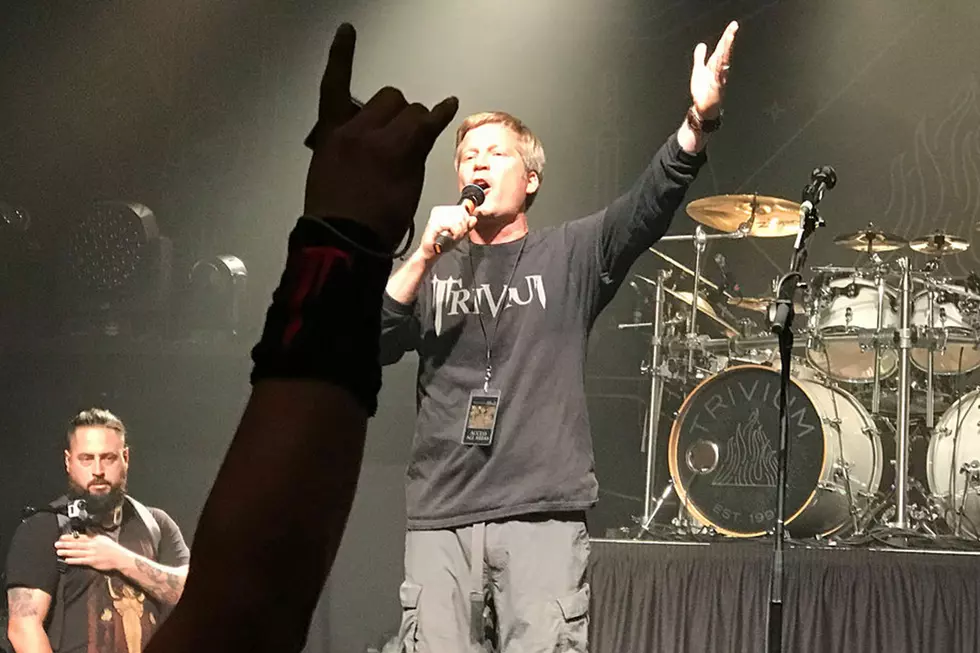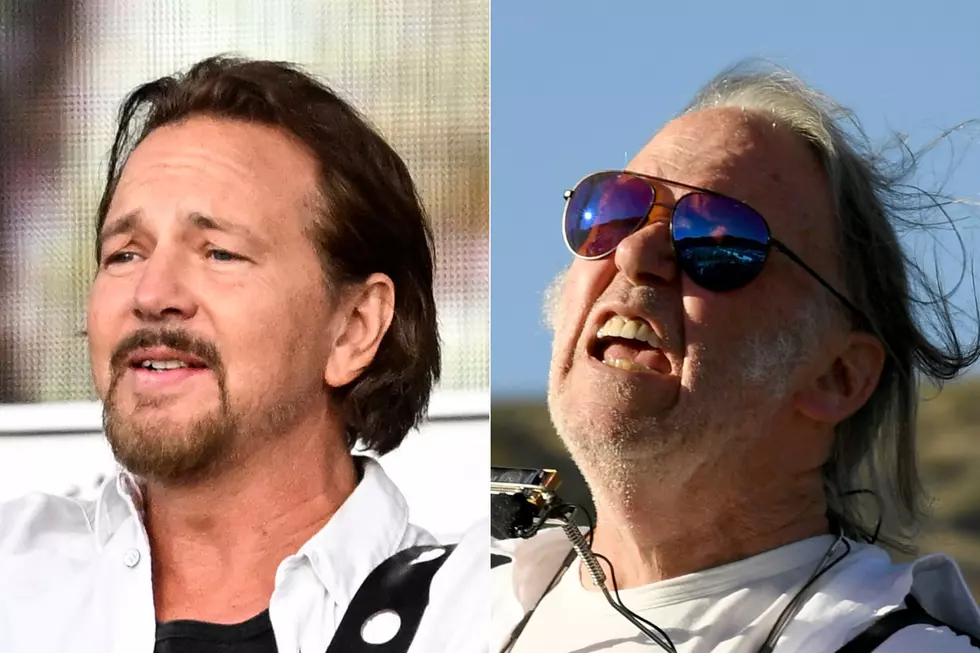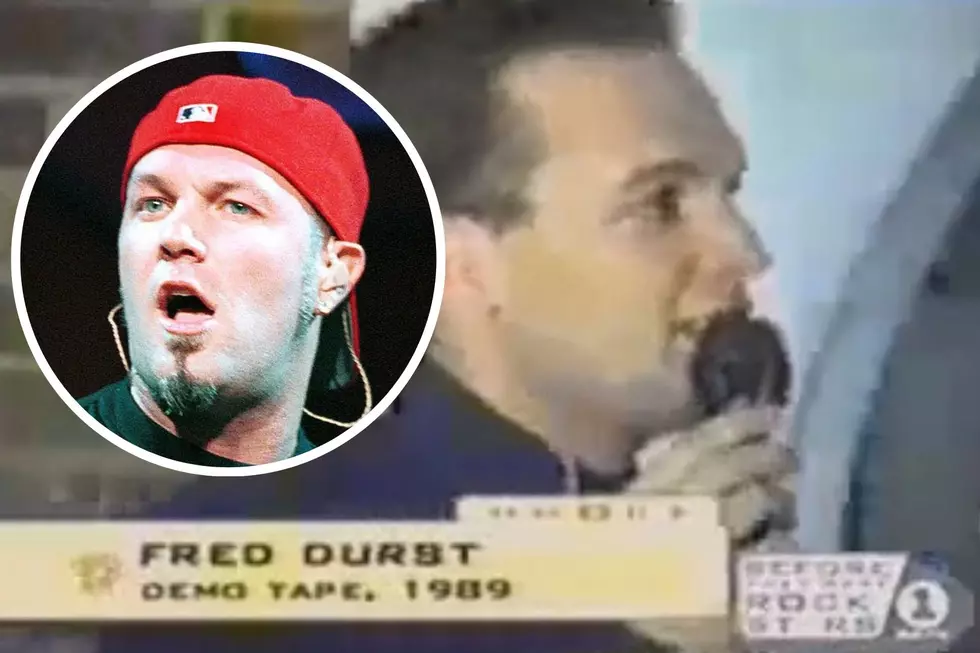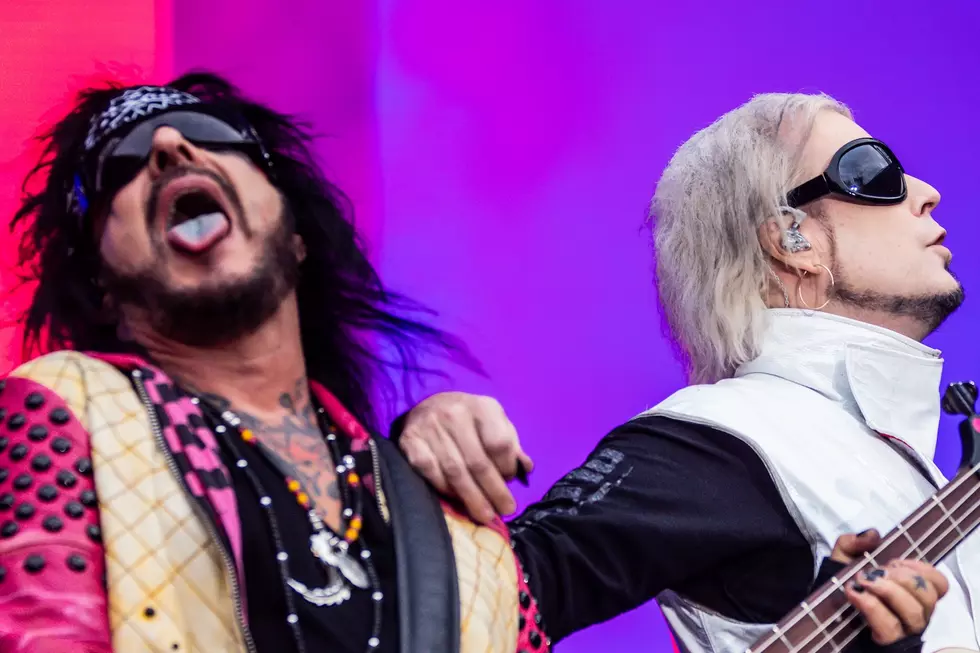
Meet Tim Keller, the Metal-Loving Mayor of Albuquerque, New Mexico
Most politicians, on either side of the aisle, look to align themselves with famous actors, musicians and athletes who share their views to pull crowds at campaign stops. But is Hillary Clinton really a big Katy Perry fan? Does Donald Trump celebrate the work of Scott Baio by binge-watching Joanie Loves Chachi? You never know if they're really fans of the famous folks that they hit the campaign trail with.
But Albuquerque, N.M. Mayor Tim Keller is a legit metal fan, he's introduced Anthrax and Trivium from the stage at their shows... and we noticed that he follows us on Twitter, so we reached out to him to ask for an interview. He took time off from his responsibilities to talk to us about metal, politics and one of his most popular decisions as Mayor.
How has being a metalhead informed your politics?
For me, actually, it’s played a significant role in terms of a couple of things. One, just the notion of challenging the system, I think, is fundamentally metal and also fundamental to the reason why I’m even in public service, in politics. I’ve always tended to be a little bit of a maverick and not someone who fits in a particular political arena. Bands that are somewhat more political than others, like Sepultura or even System of a Down, has taught me to be my own person and not take the status quo as acceptable.
Years ago, Tom Morello went to the Ozzfest, and after seeing some of the white-power t-shirts in the audience, he was inspired to form the Axis of Justice. Does it surprise you when you see metal fans who are racist?
Yeah. I’ve always had to defend metal because when people would ask me about it, even my own family or my in-laws, a lot of people have that stereotype. Certainly, in certain venues or crowds, there’s a reason for that. But I think because of actually things like Axis of Justice and just the actual diversity that’s in metal, people are telling that story.
Especially in New Mexico, metal has actually been really about rebelling against the system, and so that’s resonated a lot with our Native American population and our whole state because we’re very different than other states. We kind of view ourselves as just having our own identity and having to rise up to keep that identity, but that identity’s based in our Hispanic and Native American heritage. Our concerts are like 80 percent non-Anglo or at least more than 50.
So it was never that way in New Mexico. But certainly nationally, when I’d go to shows in other states, you’d feel some of that tension. But I think in the last ten years, especially the last five, a lot of that has really gone away.
Metal fans come from all over. Metal is really popular in Latin America.
Yeah. I think Latin America and South America have always had really strong metal roots, but I see even these documentaries of heavy metal in the Middle East and stuff. Oddly, in Japan metal is super popular. So yeah, it’s an ongoing stereotype. But I always remind people of a lot of the members of seminal bands that people don’t realize aren't white: like Tom Araya. And people are like, "Oh yeah, I never thought about that." But I did read some book about how metal and hip-hop are almost the same things, sociologically, for different groups of folks, and that was really insightful. They were comparing the two, and that it was in the context of Anthrax merging the two in some ways.
I've noticed more conservative views among metal fans in the past decade; when I was younger, conservatives seemed to always disapprove of metal.
Interestingly, I find that metal folks might have certain beliefs, which can skew a little bit more conservative. But the music choice is more of a personal choice than a political choice. Other than some of the more outwardly political bands, most metal is about dealing with your own personal issues and things you’re dealing with, as opposed to things society’s dealing with. So people are there for personal reasons and not there for societal reasons.
There's a narrative that "rock is dead" in the media. But, that always feels like a very "big city" narrative that ignores a lot of the country. And when you do that, you can go to bed one night thinking Hillary Clinton is going to be president, and you wake up the next morning and it's Donald Trump.
[Laughs] I think there’s just ebbs and flows. I remember people said that [rock is dead] after glam metal went away. And then after Pantera, people said there’s nothing left but Florida death metal. But then that became gigantic, and then the Swedish new wave caught on. So I feel like it’s just part of the natural ebb and flow of a genre of music that will be here to stay. But I do think there’s a little bit of an ebb I guess, just in terms of acceptance in the mainstream. But I think that’s normal. It cycles through.
It’s a diverse country and that's reflected in our musical tastes, and I think whenever you try to make generalizing statements about something disappearing, it’s probably gonna be proven wrong. In fact, it might even inspire the opposite reaction, where the main [thing], whatever’s cool at the time becomes "selling out" and people abandon it. And I think that’s what we saw with both glam metal and then Metallica at its peak, and then there was this kind of reaction. So it’s all part of the natural cycle.
Bands like Nirvana and Alice In Chains were seen as a reaction to glam.
I actually have a glam album from Alice in Chains. It was like a bootleg record I got way a long time ago. It was back when they were trying to make it as a glam band. It had a song called “Football.”
I'd imagine that at this point, bands are kind of suspicious of politicians. How did you get a band like Trivium to let you onstage with them?
Oh, yeah. Rebelling against politics is kind of fundamental to metal. But when people have a conversation and realize that you’re actually a real metal fan, they really think it’s cool. But I do think some of them, they Google me, they do a little spot check to see if there’s something that they don’t like. But with a lot of them, I’ve been to several of their shows before. So it’s easy to be like, "Oh man, I saw you guys two years ago, what a great set," and that kind of thing. Then they know you’re legitimate. So I think once they realize that you’re an authentic dude, it’s cool. So they just wanna screen for that first.
You have to have an old, worn-out Motorhead t-shirt, not a brand new one.
[Laughs] When I did the intro for Trivium, that was actually my inauguration day. That was my first full day, and I left my own parade to go "open" for Trivium. I was so excited. For me, it was just this cool dream-come-true way to start being the Mayor of Albuquerque and also getting to introduce the band that I love. Those were two things that were incredible that happened basically in the same 24 hours. So that was really, really cool.
So how did you get them to let you onstage and speak to their audience?
I was so new as mayor, and because I don’t have long hair, I don’t have any tattoos... so when I first came out, people assume it’s somebody who works in promotion or something with some kind of public service announcement. But they’re also pleasantly surprised that I’m actually a fan. They’re like, "Wow, that’s cool."
But with Trivium it was just good fortune. A friend of a friend was, I think, their tour manager. So I had met them a couple years ago, just quickly said "Hi" to them backstage. We just exchanged personal information, we just kind of kept in touch here and there every couple of months just talking about what they were up to, what I was up to. So I knew them. I would’ve been at that show anyway [the night of the inauguration], and I would’ve already said, like, "Hey guys, it’s good to catch up." And so it just happened that’s also when I was elected mayor. Yeah, it was just really cool.
Have you found yourself having conversations with metal fans who are politically opposed to you and coming to an understanding on any issues?
I think the main thing is, there’s an appreciation for just being an authentic person, true to yourself. Like I’ll see people all over town who will come up and be like, "Hey man, I saw you at the show last night," or they’ll just flash the devil horns or whatever, and it’s kind of cool. It’s a little bit like Fight Club. There’s this unspoken rule of mutual respect like even if we don’t know each other that well or even if we don’t agree, we respect each other.
Have you bumped into any pro-Trump metal fans, and have you tried to talk to them about politics?
(Laughs) I haven’t, actually. I think we usually just talk about music. I actually haven’t had any real confrontations like that, which is cool, but also, like I said, most heavy metal folks actually aren’t into politics that much. A lot of metal fans don’t even vote, so they’re not usually gonna be super fired up about any given issue. Other than when I decriminalized marijuana. That was definitely a hit.
I'm guessing metalheads across the aisle were into that.
(Laughs)
On the other side, how do you feel about music that doesn't align with your politics?
It’s OK if people like music that isn’t aligned with their politics. I can’t defend every lyric from every band I like, and that’s OK. I can be totally progressive and maybe like some bands that aren’t. I’m OK with that.
Finally, what are the albums that got you into metal?
It’s funny, I was just thinking about this. I don’t think there was a specific turning point, but there was this journey that I think a lot of people my age went through where I started when I was really young, like first and second grade with Bon Jovi and Europe. They’re not metal, but they’re kind of radio-friendly hard rock. And then I got sucked into [Motley] Crue and Poison and the glam era when I was in middle school. Then Guns N Roses exploded and then so did grunge and then Metallica. Those three things culminated in early high school where I fell in love with Pantera. And Pantera was a gateway into all sorts of metal subgenres. So I have to give them credit. They’re the ones who took me all the way down the metal path. But the introductory bands were GNR and, of course, Metallica.
Trivium Albums Ranked
More From Loudwire









